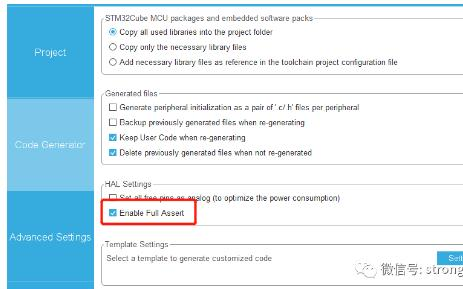一、assert(断言)简介
assert的功能,条件为真,程序继续执行;如果断言为假(false),则程序终止。
assert是个 宏定义 !
头文件:
#include < assert.h >
原型:
void assert(scalar expression);
返回值:无返回值。
头文件assert.h内容如下:
/* Copyright (C) 1991-2018 Free Software Foundation, Inc.
This file is part of the GNU C Library.
The GNU C Library is free software; you can redistribute it and/or
modify it under the terms of the GNU Lesser General Public
License as published by the Free Software Foundation; either
version 2.1 of the License, or (at your option) any later version.
The GNU C Library is distributed in the hope that it will be useful,
but WITHOUT ANY WARRANTY; without even the implied warranty of
MERCHANTABILITY or FITNESS FOR A PARTICULAR PURPOSE. See the GNU
Lesser General Public License for more details.
You should have received a copy of the GNU Lesser General Public
License along with the GNU C Library; if not, see
< http://www.gnu.org/licenses/ >. */
/*
* ISO C99 Standard: 7.2 Diagnostics < assert.h >
*/
#ifdef _ASSERT_H
# undef _ASSERT_H
# undef assert
# undef __ASSERT_VOID_CAST
# ifdef __USE_GNU
# undef assert_perror
# endif
#endif /* assert.h */
#define _ASSERT_H 1
#include < features.h >
#if defined __cplusplus && __GNUC_PREREQ (2,95)
# define __ASSERT_VOID_CAST static_cast< void >
#else
# define __ASSERT_VOID_CAST (void)
#endif
/* void assert (int expression);
If NDEBUG is defined, do nothing.
If not, and EXPRESSION is zero, print an error message and abort. */
#ifdef NDEBUG
# define assert(expr) (__ASSERT_VOID_CAST (0))
/* void assert_perror (int errnum);
If NDEBUG is defined, do nothing. If not, and ERRNUM is not zero, print an
error message with the error text for ERRNUM and abort.
(This is a GNU extension.) */
# ifdef __USE_GNU
# define assert_perror(errnum) (__ASSERT_VOID_CAST (0))
# endif
#else /* Not NDEBUG. */
#ifndef _ASSERT_H_DECLS
#define _ASSERT_H_DECLS
__BEGIN_DECLS
/* This prints an "Assertion failed" message and aborts. */
extern void __assert_fail (const char *__assertion, const char *__file,
unsigned int __line, const char *__function)
__THROW __attribute__ ((__noreturn__));
/* Likewise, but prints the error text for ERRNUM. */
extern void __assert_perror_fail (int __errnum, const char *__file,
unsigned int __line, const char *__function)
__THROW __attribute__ ((__noreturn__));
/* The following is not at all used here but needed for standard
compliance. */
extern void __assert (const char *__assertion, const char *__file, int __line)
__THROW __attribute__ ((__noreturn__));
__END_DECLS
#endif /* Not _ASSERT_H_DECLS */
/* When possible, define assert so that it does not add extra
parentheses around EXPR. Otherwise, those added parentheses would
suppress warnings we'd expect to be detected by gcc's -Wparentheses. */
# if defined __cplusplus
# define assert(expr)
(static_cast
? void (0)
: __assert_fail (#expr, __FILE__, __LINE__, __ASSERT_FUNCTION))
# elif !defined __GNUC__ || defined __STRICT_ANSI__
# define assert(expr)
((expr)
? __ASSERT_VOID_CAST (0)
: __assert_fail (#expr, __FILE__, __LINE__, __ASSERT_FUNCTION))
# else
/* The first occurrence of EXPR is not evaluated due to the sizeof,
but will trigger any pedantic warnings masked by the __extension__
for the second occurrence. The ternary operator is required to
support function pointers and bit fields in this context, and to
suppress the evaluation of variable length arrays. */
# define assert(expr)
((void) sizeof ((expr) ? 1 : 0), __extension__ ({
if (expr)
; /* empty */
else
__assert_fail (#expr, __FILE__, __LINE__, __ASSERT_FUNCTION);
}))
# endif
# ifdef __USE_GNU
# define assert_perror(errnum)
(!(errnum)
? __ASSERT_VOID_CAST (0)
: __assert_perror_fail ((errnum), __FILE__, __LINE__, __ASSERT_FUNCTION))
# endif
/* Version 2.4 and later of GCC define a magical variable `__PRETTY_FUNCTION__'
which contains the name of the function currently being defined.
This is broken in G++ before version 2.6.
C9x has a similar variable called __func__, but prefer the GCC one since
it demangles C++ function names. */
# if defined __cplusplus ? __GNUC_PREREQ (2, 6) : __GNUC_PREREQ (2, 4)
# define __ASSERT_FUNCTION __extension__ __PRETTY_FUNCTION__
# else
# if defined __STDC_VERSION__ && __STDC_VERSION__ >= 199901L
# define __ASSERT_FUNCTION __func__
# else
# define __ASSERT_FUNCTION ((const char *) 0)
# endif
# endif
#endif /* NDEBUG. */
#if defined __USE_ISOC11 && !defined __cplusplus
# undef static_assert
# define static_assert _Static_assert
#endif
assert的定义如下:

此句意思如下:
expr为真,
执行 __ASSERT_VOID_CAST (0) ;
否则执行 __assert_fail (#expr, __FILE__, __LINE__, __ASSERT_FUNCTION))
条件表达式 ,伪代码:
a?b:c
//如果a为真,执行b;
//如果a为假,执行c
二、测试代码
参数数量为2,则输出参数。否则输出错误信息,并终止程序执行。测试代码如下:
#include < stdio.h >
#include < assert.h >
int main(int argv,char *argc[])
{
printf("argv=%dn",argv);
assert(argv== 2);
printf("argc[1]=%sn",argc[1]);
return 0;
}


声明:本文内容及配图由入驻作者撰写或者入驻合作网站授权转载。文章观点仅代表作者本人,不代表电子发烧友网立场。文章及其配图仅供工程师学习之用,如有内容侵权或者其他违规问题,请联系本站处理。
举报投诉
-
C语言
+关注
关注
183文章
7642浏览量
144621 -
程序
+关注
关注
117文章
3836浏览量
84766 -
代码
+关注
关注
30文章
4941浏览量
73151
发布评论请先 登录
相关推荐
热点推荐
什么是断言?C语言中断言的语法和用法
在软件开发过程中,我们经常需要处理各种错误和异常情况。为了提高代码的健壮性和可靠性,我们需要使用一些工具和技术来检测和处理这些问题。本篇博客将深入探讨C语言中断言的使用,帮助读者更好地理解和应用断言,提高代码的质量和可维护性。
发表于 08-03 10:34
•3822次阅读
请问HAL函数对Handle有效性的检查为什么不是用assert_param断言?
));
......
}
以HAL_SPI_Init为例,hspi参数的检查并没有使用assert_param断言宏,如果是我实现的话,我会用assert_param(hspi != NULL)实现。一般
发表于 05-08 07:00
断言(ASSERT)的用法
STM32中经常出现assert函数,网上看了篇博客分享下:我一直以为assert仅仅是个报错函数,事实上,它居然是个宏,并且作用并非“报错”。 在经过对其进行一定了解之后,对其作用及用法有了一定
发表于 08-23 09:33
何为断言?断言该怎么使用呢
存在错误。因此,断言是提高程序可靠性的有效手段。也是开发阶段快速定位问题的一种很好防御式编程方法。在C语言中,断言是一些条件判断的宏。比如C
发表于 09-21 14:59
如何得当使用C语言的特殊的用法
C语言有很多特殊的用法,如果这些特殊用法使用得当,会是你的代码变得更加有健壮,更加容易维护。 比如我们在使用STM32库的断言(assert),你会发现官方提供了包含__FILE__

STM32函数库Assert断言机制
编写代码时,我们总是会做出一些假设,断言就是用于在代码中捕捉这些假设,可以将断言看作是异常处理的一种高级形式。断言表示为一些布尔表达式,程序员相信在程序中的某个特定点该表达式值为真。可以在任
发表于 02-08 15:29
•2次下载

C语言断言函数assert()的应用,清晰明了!
这样可以快速发现并定位软件问题,同时对系统错误进行自动报警。对于在系统中隐藏很深,用其他手段极难发现的问题也可以通过断言进行定位,从而缩短软件问题定位时间,提高系统的可测性。
防御式编程之断言assert的使用
防御式编程的重点就是需要防御一些程序未曾预料的错误,这是一种提高软件质量的辅助性方法,断言assert就用于防御式编程,编写代码时,我们总是会做出一些假设,断言就是用于在代码中捕捉这些假设。使用





 C语言assert(断言)简介
C语言assert(断言)简介












评论